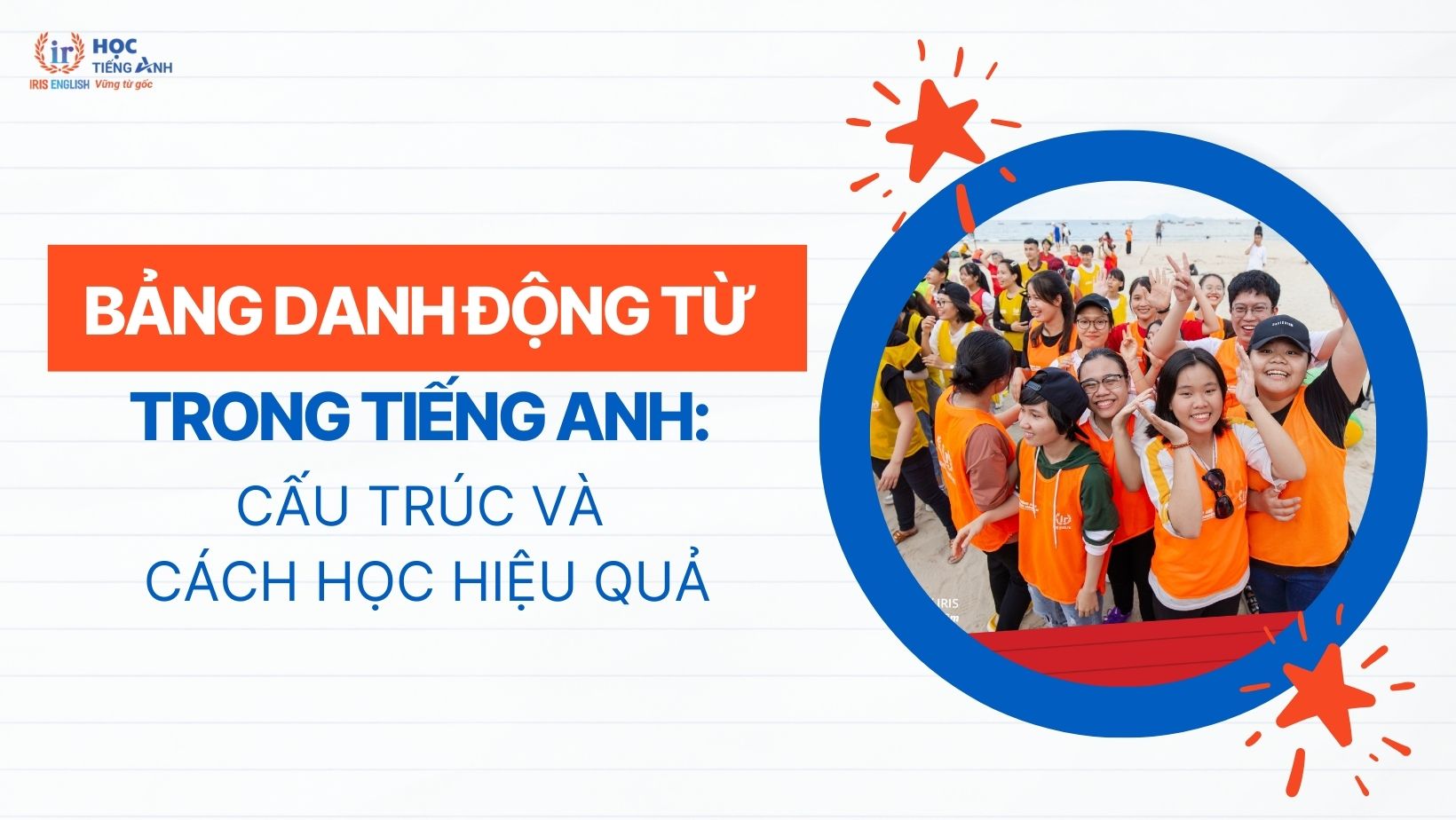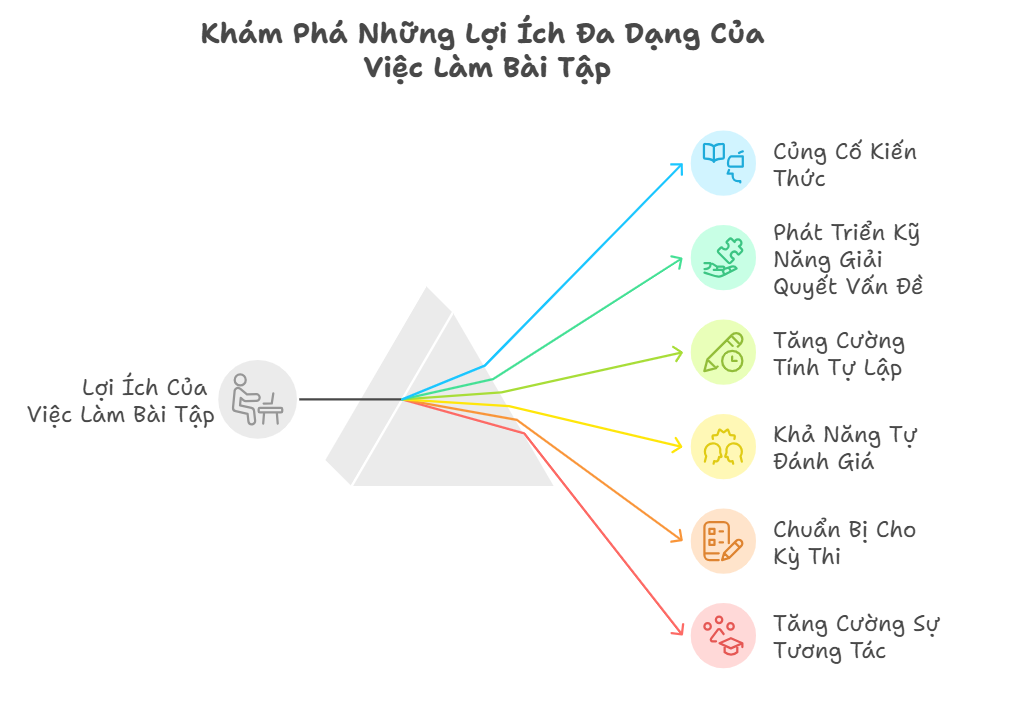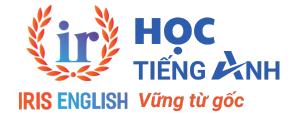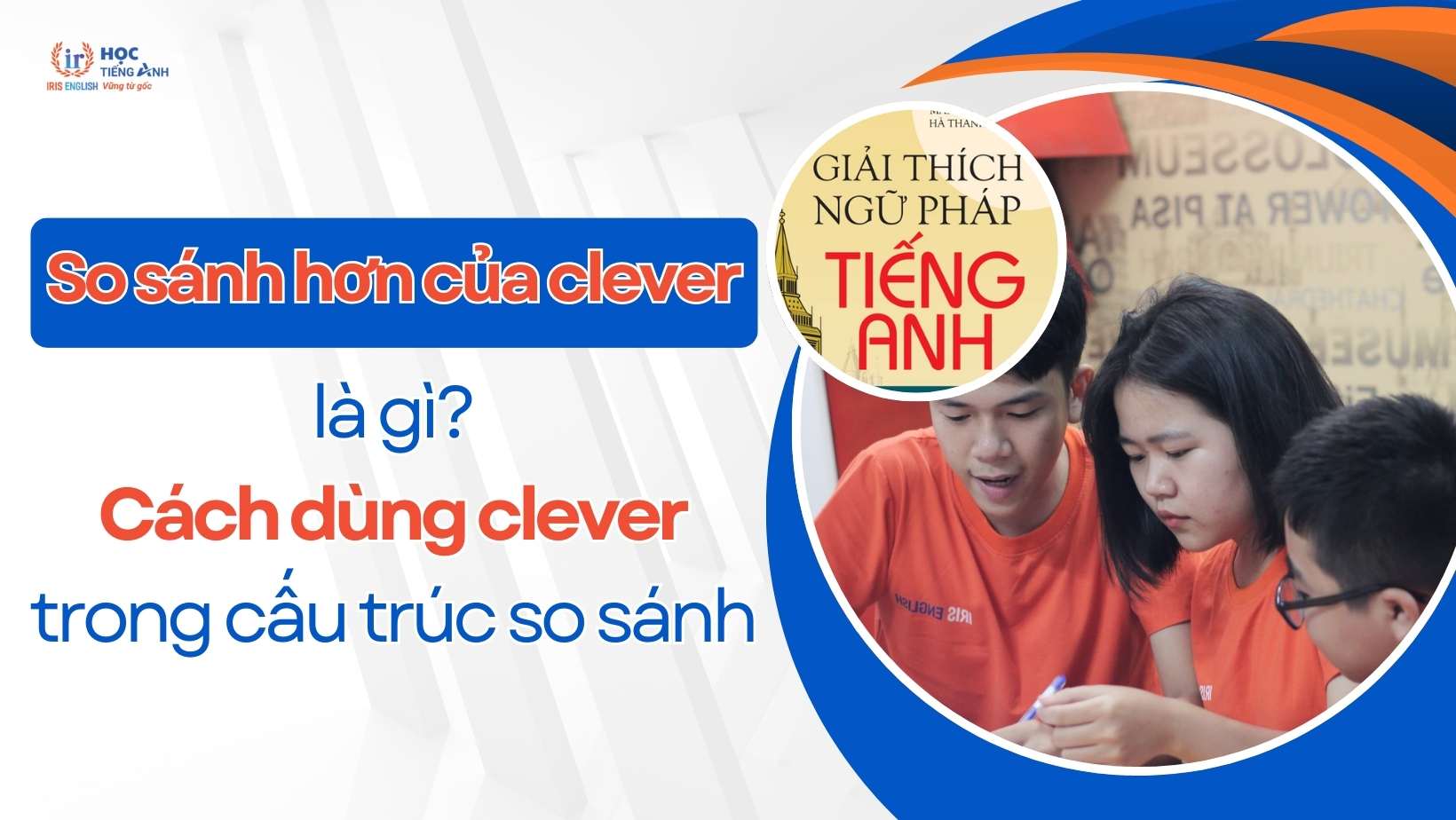Bài tập danh động từ là chìa khóa giúp bạn làm chủ một trong những điểm ngữ pháp phổ biến và quan trọng trong tiếng Anh. Danh động từ không chỉ xuất hiện thường xuyên trong giao tiếp mà còn là “gương mặt quen thuộc” trong các bài thi ngữ pháp. Để giúp bạn hiểu sâu hơn và sử dụng danh động từ thành thạo, chúng tôi đã tổng hợp 150+ bài tập kèm hướng dẫn lời giải chi tiết, hỗ trợ bạn học dễ dàng và hiệu quả hơn.
Tóm tắt lý thuyết danh động từ (Gerund)

Danh động từ (Gerund): Động từ thêm -ing, hoạt động như danh từ. Swimming is fun.
Vị trí của danh động từ trong câu
| Vị trí | Ví dụ |
| Chủ ngữ | Reading is relaxing. |
| Tân ngữ của động từ | She enjoys dancing. |
| Tân ngữ của giới từ | He is interested in learning English. |
| Bổ ngữ | Her hobby is painting. |
Động từ thường theo sau danh động từ: Like, love, enjoy, dislike, hate, prefer, Finish, stop, avoid, mind, suggest, consider, Keep, practice, miss, imagine, deny, admit
Cấu trúc đặc biệt với danh động từ
| Cấu trúc | Ví dụ |
| It’s no use / It’s no good + V-ing | It’s no use crying over spilled milk. |
| Can’t help / Can’t stand + V-ing | I can’t stand waiting in line. |
| Spend + time/money + V-ing | He spends hours reading books. |
| Be busy + V-ing | She is busy preparing for her exams. |
Xem thêm chi tiết: Danh động từ trong tiếng Anh: Ví trí, cách dùng, các lỗi thường gặp và bài tập
Các bài tập danh động từ theo lớp

Cấp độ cơ bản (Lớp 7 – 8)
Điền danh động từ vào chỗ trống
Cụm từ gợi ý: swimming, reading, playing, cooking, watching
-
My brother enjoys ___ football every afternoon.
-
___ books is my favorite hobby.
-
She is good at ___ delicious meals.
-
We often go ___ at the pool on weekends.
-
___ TV too much is not good for your eyes.
Đáp án:
-
playing
-
Reading
-
cooking
-
swimming
-
Watching
Chọn đáp án đúng (A, B, C hoặc D)
-
He enjoys ___ chess in his free time. A. play B. playing C. to play D. played
-
They are interested in ___ new cultures. A. learn B. learning C. to learn D. learned
-
She spends hours ___ her favorite books. A. to read B. read C. reading D. reads
-
He is busy ___ for the upcoming exam. A. study B. studying C. to study D. studied
Đáp án:
-
B. playing
-
B. learning
-
C. reading
-
B. studying
Viết lại câu sử dụng danh động từ
-
She likes to cook for her family. (use: cooking)
-
Reading is important for students. (use: enjoys)
-
He spends time playing sports every day. (use: enjoys)
-
Watching TV is her favorite activity. (use: likes)
-
They go to the park to jog every weekend. (use: jogging)
Đáp án:
-
She enjoys cooking for her family.
-
She enjoys reading because it’s important for students.
-
He enjoys playing sports every day.
-
She likes watching TV as her favorite activity.
-
They enjoy jogging in the park every weekend.
Nối câu có danh động từ với nghĩa tương ứng
| Danh động từ | Ý nghĩa |
| 1. Swimming | A. Đọc sách |
| 2. Playing | B. Bơi lội |
| 3. Reading | C. Chơi thể thao |
| 4. Cooking | D. Nấu ăn |
| 5. Watching | E. Xem TV |
Đáp án:
| Danh động từ | Ý nghĩa |
| 1. Swimming | B. Bơi lội |
| 2. Playing | C. Chơi thể thao |
| 3. Reading | A. Đọc sách |
| 4. Cooking | D. Nấu ăn |
| 5. Watching | E. Xem TV |
Dịch câu có danh động từ sang tiếng Anh
-
Cô ấy thích nấu ăn cho gia đình của mình.
-
Chúng tôi rất thích bơi vào mùa hè.
-
Xem TV quá nhiều không tốt cho mắt.
-
Anh ấy dành thời gian đọc sách mỗi tối.
-
Chơi thể thao giúp bạn khỏe mạnh hơn.
Đáp án:
-
She enjoys cooking for her family.
-
We love swimming in the summer.
-
Watching TV too much is not good for your eyes.
-
He spends time reading books every evening.
-
Playing sports helps you become healthier.
Cấp độ trung cấp (Lớp 9 – 11)
Điền danh động từ vào chỗ trống
Cụm từ gợi ý: practicing, studying, visiting, avoiding, taking
-
She spends hours ___ her pronunciation every day.
-
___ late at night can negatively affect your health.
-
He suggested ___ the museum during our trip.
-
The doctor recommends ___ junk food to stay healthy.
-
They enjoy ___ photos when they travel.
Đáp án:
-
practicing
-
Studying
-
visiting
-
avoiding
-
taking
Chọn đáp án đúng (A, B, C hoặc D)
-
The teacher advises ___ regularly to improve English skills. A. practice B. practicing C. to practice D. practiced
-
She is interested in ___ more about history. A. learning B. to learn C. learned D. learns
-
They enjoy ___ together on weekends. A. to cook B. cooking C. cooked D. cook
-
The company denied ___ the complaints about their product. A. receiving B. to receive C. received D. receives
-
He admitted ___ late for the meeting. A. being B. to be C. be D. been
Đáp án:
-
B. practicing
-
A. learning
-
B. cooking
-
A. receiving
-
A. being
Viết lại câu sử dụng danh động từ
-
She spends her free time reading novels. (use: enjoy)
-
Playing sports helps me stay healthy. (use: enjoy)
-
I dislike waking up early in the morning. (use: hate)
-
Studying hard will help you achieve your goals. (use: recommend)
Đáp án:
-
She enjoys reading novels in her free time.
-
I enjoy playing sports because it helps me stay healthy.
-
I hate waking up early in the morning.
-
The teacher recommends studying hard to achieve your goals.
Dịch câu có danh động từ sang tiếng Anh
-
Cô ấy dành thời gian học tiếng Anh mỗi ngày.
-
Tránh ăn đồ ăn nhanh là tốt cho sức khỏe của bạn.
-
Anh ấy quan tâm đến việc học văn hóa truyền thống.
-
Giáo viên khuyến khích đọc sách mỗi ngày.
-
Tôi thích chơi cầu lông vào buổi chiều.
Đáp án:
-
She spends time studying English every day.
-
Avoiding eating fast food is good for your health.
-
He is interested in learning about traditional culture.
-
The teacher recommends reading books every day.
-
I enjoy playing badminton in the afternoon.
Cấp độ nâng cao (Lớp 12 – Thi THPT Quốc gia)
Điền danh động từ vào chỗ trống
Cụm từ gợi ý: working, postponing, denying, admitting, improving
-
She keeps ___ on the project despite facing many difficulties.
-
The manager suggested ___ the meeting until next week.
-
He never considered ___ his mistakes in public.
-
___ responsibility for the error shows maturity.
-
They focused on ___ the quality of their services.
Đáp án:
-
working
-
postponing
-
denying
-
Admitting
-
improving
Chọn đáp án đúng (A, B, C hoặc D)
-
The teacher insisted on ___ the students about the exam rules. A. reminding B. remind C. reminded D. to remind
-
He avoided ___ any comments that might upset his team members. A. to make B. making C. make D. made
-
The company was accused of ___ environmental laws. A. violating B. violate C. violated D. to violate
-
I appreciate your ___ time to help me with my homework. A. spend B. spent C. spending D. to spend
-
___ the problem early could have prevented further issues. A. Addressed B. Address C. Addressing D. To address
Đáp án:
-
A. reminding
-
B. making
-
A. violating
-
C. spending
-
C. Addressing
Phát hiện lỗi sai và sửa lại câu
-
She avoided to mention the incident during the meeting.
-
I’m interested in to learn more about your research.
-
They denied to involve in the scandal.
-
Spending too much time on social media has negatively affected her grades. (No error)
-
He admitted to steal the documents from the office.
Đáp án:
-
Sai: to mention → mentioning
-
Sai: to learn → learning
-
Sai: to involve → being involved
-
Không sai: Spending
-
Sai: to steal → stealing
Viết lại câu sử dụng danh động từ
-
He regrets that he didn’t listen to his parents’ advice. (use: regret)
-
We need to continue the discussion after the break. (use: carry on)
-
She suggested that we should take a walk in the park. (use: suggest)
-
Failing the exam is something he never wants to experience again. (use: avoid)
-
They admitted that they had cheated during the test. (use: admit)
Đáp án:
-
He regrets not listening to his parents’ advice.
-
We need to carry on discussing after the break.
-
She suggested taking a walk in the park.
-
He always tries to avoid failing the exam again.
-
They admitted cheating during the test.
Dịch câu có danh động từ sang tiếng Anh
-
Tránh trì hoãn công việc sẽ giúp bạn hiệu quả hơn.
-
Tôi hối tiếc vì đã không làm theo lời khuyên của cô ấy.
-
Chúng tôi tiếp tục thảo luận về kế hoạch mới sau giờ nghỉ trưa.
-
Cô ấy đề nghị tham gia một khóa học trực tuyến để cải thiện kỹ năng.
-
Việc dành quá nhiều thời gian cho mạng xã hội có thể ảnh hưởng tiêu cực đến cuộc sống của bạn.
Đáp án:
-
Avoiding postponement of work will make you more efficient.
-
I regret not following her advice.
-
We carried on discussing the new plan after the lunch break.
-
She suggested taking an online course to improve skills.
-
Spending too much time on social media can negatively affect your life.
Bài tập về danh động từ hoàn thành (Perfect Gerund)
Điền dạng đúng của danh động từ hoàn thành
Cụm từ gợi ý: having finished, having been, having studied, having seen, having failed
-
He apologized for ___ late to the meeting.
-
She regretted ___ the movie earlier because now it seemed boring.
-
___ the project on time, he received praise from his manager.
-
The students were proud of ___ hard for the final exams.
-
After ___ the exam once, he worked harder to pass it.
Đáp án:
-
having been
-
having seen
-
Having finished
-
having studied
-
having failed
Chọn đáp án đúng (A, B, C, hoặc D)
-
They were congratulated on ___ the contract successfully. A. signing B. having signed C. sign D. to sign
-
He regrets ___ such an unwise decision in the past. A. make B. making C. having made D. to make
-
The teacher thanked the students for ___ their best efforts in the project. A. having given B. giving C. gave D. to give
Đáp án:
-
B. having signed
-
C. having made
-
A. having given
Viết lại câu sử dụng danh động từ hoàn thành
-
She regretted that she had not studied harder for the test. (use: regret)
-
He admitted that he had forgotten the appointment. (use: admit)
-
They congratulated her because she had completed the marathon. (use: congratulate)
-
He denied that he had been involved in the incident. (use: deny)
-
She thanked them because they had helped her during difficult times. (use: thank)
Đáp án:
-
She regretted not having studied harder for the test.
-
He admitted having forgotten the appointment.
-
They congratulated her on having completed the marathon.
-
He denied having been involved in the incident.
-
She thanked them for having helped her during difficult times.
Dịch câu có danh động từ hoàn thành sang tiếng Anh
-
Anh ấy bị buộc tội vì đã không hoàn thành công việc đúng hạn.
-
Cô ấy tự hào vì đã đạt được giải thưởng lớn.
-
Họ hối tiếc vì đã không nói sự thật sớm hơn.
-
Giáo viên cảm ơn học sinh vì đã hoàn thành bài tập đúng hạn.
-
Cô ấy thừa nhận đã nói dối bạn mình.
Đáp án:
-
He was blamed for not having completed the task on time.
-
She was proud of having won the big prize.
-
They regretted not having told the truth earlier.
-
The teacher thanked the students for having completed the homework on time.
-
She admitted having lied to her friend.
Phát hiện lỗi sai và sửa
-
He was blamed for to miss the deadline.
-
She thanked her team for have supported her in the project.
-
They congratulated him on sign the agreement.
-
He regrets not made better choices in the past.
-
She admitted having broken the vase.
Đáp án:
-
Sai: to miss → having missed
-
Sai: have supported → having supported
-
Sai: sign → having signed
-
Sai: not made → not having made
-
Không sai: having broken
Với 150+ bài tập danh động từ kèm hướng dẫn lời giải chi tiết, bạn đã có trong tay một tài liệu luyện tập toàn diện để nâng cao kiến thức ngữ pháp của mình. Hãy tận dụng các bài tập này để hiểu sâu hơn cách sử dụng danh động từ và tránh các lỗi sai thường gặp. Việc luyện tập đều đặn sẽ giúp bạn tự tin hơn khi áp dụng vào giao tiếp và viết lách. Chúc bạn học tập hiệu quả và chinh phục tiếng Anh thành công








